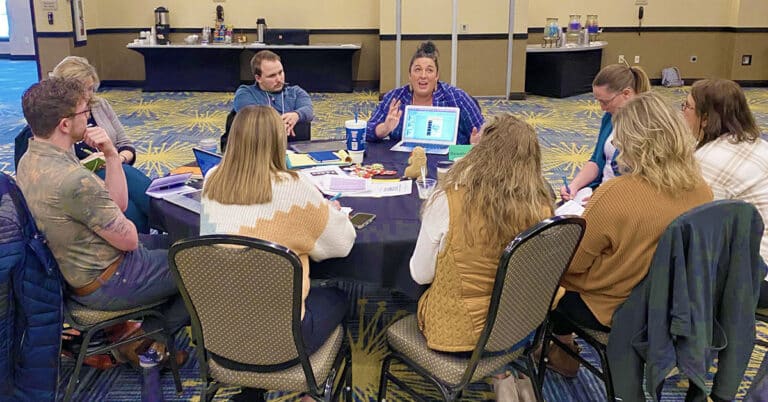By LaToya Beecham and Lauren Bui
While those in conventional leadership roles can put change into motion, systems-change efforts can only be sustained when diverse perspectives are heard and acted on. Leadership needs to be shared with those who are experiencing the system first-hand. Youth need to have opportunities to make meaningful contributions to education change.
For effective youth-adult partnerships, adult leaders, policymakers and other decision makers must:
1. Create the space
Young people are not always affirmed in their opinion. This needs to be counteracted as youth might not know that they should or can speak up. Adults should create space to help affirm that youth perspective matters. For example, I grew up conditioned to obey and not defy authority – as “they always know best.” Youth educational leadership groups can be an opportunity and space for young people to tackle educational inequities.
As Lauren Bui, a 12th grade student from Nevada, puts it: “It is important to demonstrate to youth that perspectives are going to be accounted for. Adults’ belief in me is what allowed me to step outside of my shell and become more confident in utilizing my voice for positive change efforts, eventually testifying for more accessible internships and College and Career Diplomas at my Nevada legislative capital. Adults in positions of power need to take accountability for creating a space for youth to be listened to.”
2. Ensure equitable access
Creating space for youth to be leaders is critical. Young people need to be present for authentic inclusivity. Young people have responsibilities that do not always fit into the schedules for education leadership. When youth engagement spaces are created, youth should be able to be a part of those spaces without having to risk missing other responsibilities. Spaces should be flexible and schedules should align with youth needs.
To create accessible space also means compensating young people. Youth participate in extracurriculars and have jobs that they need to provide for themselves or their families. If young people are asked to take time outside of school hours, it might mean they have to take time from a paying position. To ensure equitable access to leadership opportunities, adults should ensure compensation. When this is not an option, credits or community hours can also be helpful.
Follow-up
Elevating youth voice is an increasingly popular concept. However, there are consequences to quickly developing strategies to realize this concept, including a lack of authenticity. Adults who are seeking to elevate youth voice should prioritize the roles and actions youth can take to be leaders in youth-adult partnerships.
One strategy for doing this is following up. Ensure there are activities that continue after an initial youth engagement. Avoid surface-level youth engagement strategies like the one-and-done youth panel. Youth should be able to bring their experiences to their community and carry their learning into future leadership opportunities.

LaToya Beecham
LaToya is a sophomore at the University at Buffalo. She hopes that she can continue to help advocate for her communities and motivate youth to take charge to catalyze the change they want to see.
 Lauren Bui
Lauren Bui
Lauren is a senior in high school and an advocate for youth voice in change efforts. She hopes to promote equity in education for all students to receive fulfilling experiences as they pursue their passions.




